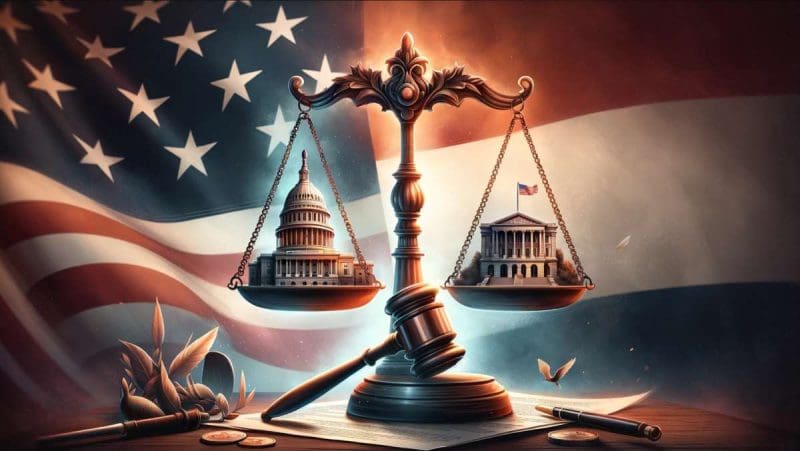
In an unprecedented legal twist, the Colorado Supreme Court has issued a ruling that disqualifies former President Donald Trump from appearing on the state’s ballots for the 2024 presidential election.
This decision, stemming from Trump’s alleged involvement in the January 6, 2021, Capitol riot, signifies a profound shift in the application of constitutional law, particularly the interpretation of the 14th Amendment.
A Constitutional Quandary
The January 6 Inflection Point
The January 6 riot, a day etched in infamy, has transformed from a moment of national shock to a pivot for legal interpretation. The riot, characterized by its attempt to disrupt the peaceful transfer of power, is now central to the debate on the boundaries of political actions and their constitutional consequences.
14th Amendment: A Historical Perspective
The 14th Amendment, particularly its Section 3, forms the bedrock of this legal debate. This often-overlooked clause, framed in the post-Civil War era, bars individuals who have participated in insurrection or rebellion against the United States from holding federal office. Its application to a former president in the context of the Capitol riot marks a novel interpretation of this Reconstruction-era provision.
The Court’s Rationale
The Colorado Supreme Court’s decision reverses a lower court’s ruling, highlighting a judicial willingness to engage with complex constitutional issues in contemporary politics. This decision is not just about interpreting legal texts; it’s a statement on how historical laws resonate in current political climates.
Broader Implications: Political and Legal Echoes
The implications of this ruling are vast and varied. Politically, it may set a precedent for other states and fuel discussions on the accountability of elected officials. Legally, it opens avenues for fresh interpretations of the Constitution, inviting debates on the relevance and application of archaic clauses in modern governance.
The Path Forward: Stays and Appeals
Importantly, the ruling is stayed until January 4, pending further appeals. This stay underscores the evolving nature of this legal battle, indicating that the final word on Trump’s ballot eligibility is yet to be spoken.
Concluding Thoughts: A New Constitutional Epoch
This ruling marks a critical juncture in American constitutional law. It reflects a dynamic interplay between history and modernity, law and politics. As the nation stands at this constitutional crossroads, the case becomes a microcosm of the larger dialogue about the role of the judiciary, the elasticity of constitutional interpretations, and the ever-evolving nature of American democracy.
